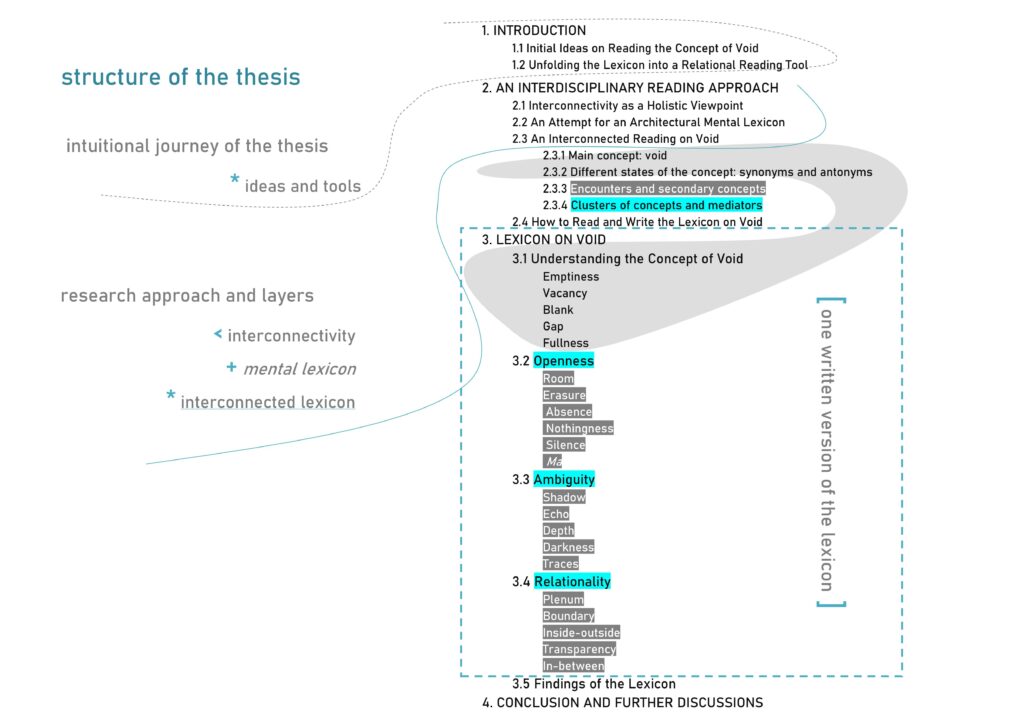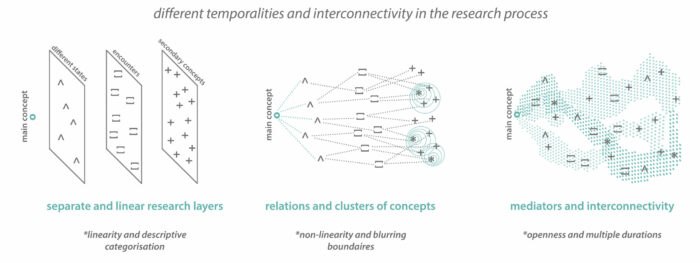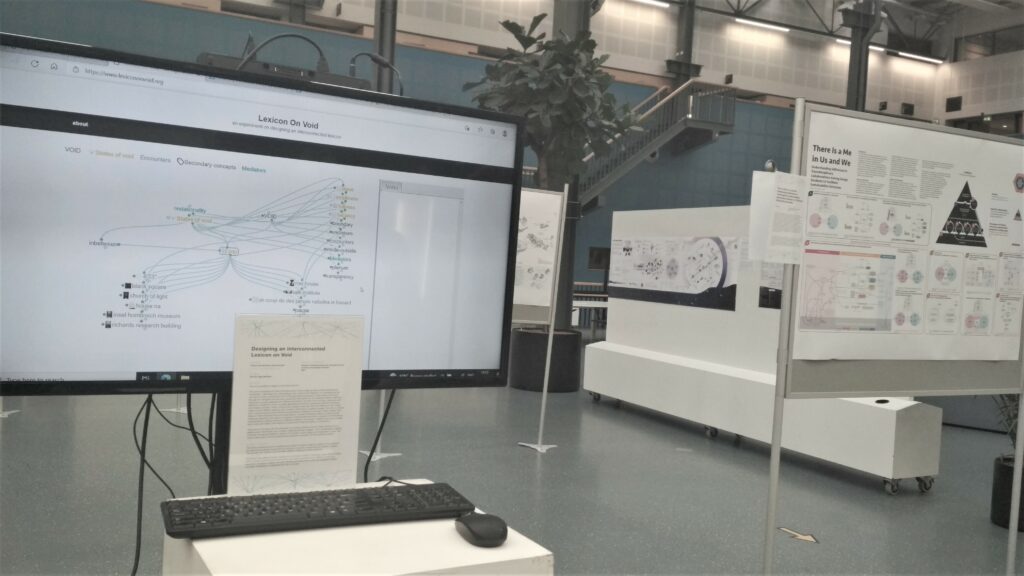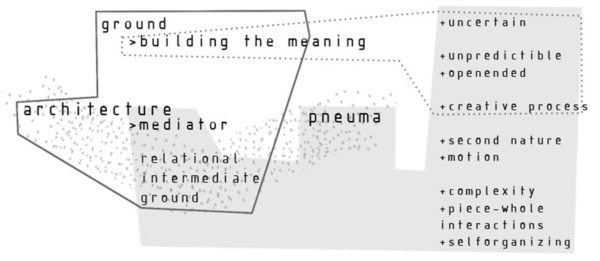architectural lexicon on void: an interconnected reading approach, 2024
What began as an intuitive exploration evolves into an expansive PhD research project, driven by a profound enthusiasm to establish “void” as a fundamental concept for comprehending architecture and enhancing architectural meanings in dialogue with other disciplines. This aspect is generated by an interconnected lexicon which acts as both method and outcome of the research process. Emphasizing “understanding” over “defining”, the research adopts an essential approach of interconnectivity borrowed from neuroscience. Inspired by lexicography and mental lexicon studies, the research conceptualises constructing a vocabulary.
Click here for the thesis.
*PhD Thesis, Istanbul Technical University, Architectural Design Program, Advisor: Prof. Dr. Ayşe Şentürer

towards an interconnected reading method: temporality of an architectural lexicon, 2023
This article aims to focus on specifically temporality of an open-ended research approach in architecture. It introduces an interconnected reading method and explicates the research layers and their relations through an architectural lexicon. Therefore, it deciphers an on-going PhD research called Architectural Lexicon on Void, which seeks to contribute to building a new architectural vocabulary. Based on the approach of interconnectivity, it interprets the lexicon as a means of “reading” and “understanding” the concept of void in architecture. In order to discuss temporality, the article touches the idea of openness by Eco and Deleuze, together with Bergson’s idea of duration. It considers temporality of this research process as an open whole which consists of multiple durations and studies the research layers within this frame.
Click here for the article.
*GRID – Architecture Planning and Design Journal , 6 (2) , 725-744 . DOI: 10.37246/grid.1211258

designing an interconnected lexicon on void, 2021
This work introduces an interconnected lexicon that builds an open-ended architectural vocabulary. It generates an ongoing PhD research method on understanding the concept of void in architecture with an interdisciplinary approach. It discusses architecture through an intangible concept, and evolves into an interactive lexicon based on relational concepts adopted from different disciplines.
Click here for the abstract and exhibition material.
*RSD10 Relating Systems Thinking and Design Symposium, Delft.

architecture as an intermediate ground, 2013
In order to gain a comprehensive understanding of the world, there is a tendency to construct a solid ground and to base meaning on that foundation, in contrast to ambiguity. This study examines the role of architecture in this search for a solid ground and addresses the following questions: Is the world’s ground a solid and unchanging entity? If this ground is not, in fact, solid and steady, how might architecture be situated with it? A new perspective on the concept of “ground” can be developed by examining concepts such as complexity, uncertainty, and non-linearity introduced by scientific studies and the concepts of ground, nature, freedom, and groundlessness discussed by philosophical discourse. This thesis emphasises the unpredictability, uncertainty, complex relations, dynamic and open-ended structure of the world. In addition to conceptualising these findings of science and acknowledging the concept of “ungrounding” in philosophy, the research introduces the “relational intermediate ground,” which is perceived as a potential framework for architectural discourse. “Architecture as an Intermediate Ground” plays a “mediator” role, embracing its uncertain and unpredictable aspects rather than seeking to establish a solid foundation.
Click here for the thesis.
*M.Sc. Thesis, Istanbul Technical University, Architectural Design Program, Advisor: Prof. Dr. Ayşe Şentürer

nonlinear studio approach in design education, 2012
Instead of a certain and definite design approach, a new perception which forms a dynamic relationship with an open-ended and unpredictable features should be taken into consideration. How does this approach reflect to the design education? How can design studios, which shape an important part of the design education, be discussed with this intention? In this paper, project design studios is criticized in the light of these questions. First, the theoretical background of the subject, such as “complexity” and “nonlinear systems”, is emphasized and the relationships of these concepts with the design process is discussed. The elements of a linear design studio process is questioned and reviewed to comprehend a nonlinear approach for design studios. The aim of this research is to emphasize the importance of design process and develop a new design studio education approach by asking new questions.
Click here for the paper.
*Proceedings of İÇMEK 2012 (Interior Architecture Education Congress), Istanbul.